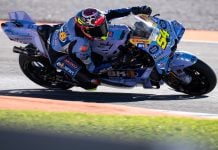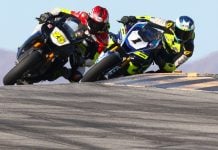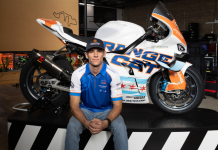Congressional committee hears testimony that lead law endangers kids PICKERINGTON, Ohio — A key U.S. House committee heard from a variety of people on April 7 who testified on revising the lead law that will impose a de facto ban on the sale of kids’ off-highway vehicles (OHVs) at the end of the year, the American Motorcyclist Association (AMA) reports. A clear message that came out of the testimony is that the “lead law” – the Consumer Product Safety Improvement Act (CPSIA) of 2008 — actually poses a danger to kids. At a hearing of the Subcommittee on Commerce, Manufacturing and Trade of the House Energy and Commerce Committee, Rep. Adam Kinzinger (R-Ill.) questioned Robert Howell, assistant executive director for hazards identification and reduction at the Consumer Product Safety Commission, which is responsible for implementing the lead law. Reiterating a statement made in 2009 by former CPSC chairwoman and current commissioner Nancy Nord, Kinzinger asked whether Howell agreed that the lead law may have the perverse effect of actually endangering children by forcing youth-sized vehicles off the market and resulting in children riding the far more dangerous adult-sized ATVs. Howell agreed. Kinzinger also said that “common sense” seems to indicate that youth-model OHVs shouldn’t be subject to the lead-content restrictions of the CPSIA. He asked whether an exemption to the lead limits of the law, as proposed in H.R. 412, the Kids Just Want to Ride Act, would be a solution. Howell answered yes. The CPSIA bans the making, importing, distributing or selling of any product intended for children 12 and under that contains more than a specified amount of lead in any accessible part. It also requires that all children’s products undergo periodic testing by independent laboratories approved by the Consumer Product Safety Commission (CPSC), which is responsible for implementing the law. The CPSC has delayed enforcing key portions of the law until after the end of the year. Unless the CPSIA is changed, the sale of kids’ dirtbikes and all-terrain vehicles (ATVs) will effectively be banned. Kinzinger said after the hearing: “Time and time again Congress fails to see the unintended consequences of legislation. “The Consumer Product Safety Improvement Act was written with the best intentions to protect the health and welfare of children. Unfortunately, the strict language in the act is actually leading children to ride ATV’s that are made for adults,” he said. Ed Moreland, AMA senior vice president for government relations, said that the law needs to be changed to ensure that families can continue to enjoy responsible motorized recreation. “Our best bet to change the law right now in Congress is the Kids Just Want to Ride Act that was introduced by Rep. Denny Rehberg (R-Mont.),” Moreland said. “We need all concerned parents and riders to contact their federal lawmakers and ask them to support the legislation.” The AMA will be conducting an AMA Family Capitol Hill Climb on Thursday, May 26, at the nation’s Capitol in Washington, D.C., to help push for support of the bill. The event will promote the future of youth dirtbike and ATV riding, and scores of young riders and their families are expected to attend. The day will begin with a press event introducing the winner of a video contest to focus attention on the plight of children and families impacted by the CPSIA. Following a screening of the winning “Kids Just Want To Ride!” video, all attendees will have the opportunity to meet with their congressional representatives to urge support for the Kids Just Want to Ride Act. For more information about the Kids Just Want to Ride Act, the AMA Family Capitol Hill Climb and the Kids Just Want To Ride! video contest, go to AmericanMotorcyclist.com. About the American Motorcyclist Association Since 1924, the AMA has protected the future of motorcycling and promoted the motorcycle lifestyle. AMA members come from all walks of life, and they navigate many different routes on their journey to the same destination: freedom on two wheels. As the world’s largest motorcycling rights organization, the AMA advocates for motorcyclists’ interests in the halls of local, state and federal government, the committees of international governing organizations, and the court of public opinion. Through member clubs, promoters and partners, the AMA sanctions more motorsports competition and motorcycle recreational events than any other organization in the world. AMA members receive money-saving discounts from dozens of well-known suppliers of motorcycle services, gear and apparel, bike rental, transport, hotel stays and more. Through its support of the Motorcycle Hall of Fame Museum, the AMA preserves the heritage of motorcycling for future generations. For more information, please visit AmericanMotorcyclist.com. More, from a press release issued by the MIC: MIC Testifies in Favor of Legislative Solution to Stop the Lead Ban IRVINE, Calif., Apr. 7, 2011 Republicans and Democrats agreed with Motorcycle Industry Council’s (MIC) General Counsel Paul Vitrano, who testified at a Congressional hearing today that Members of Congress should quickly pass legislation to stop the ban on youth-sized all-terrain vehicles (ATVs) and motorcycles caused by the unintended consequences of the Consumer Product Safety Improvement Act (CPSIA). The hearing, held by the House Committee on Energy and Commerce, Subcommittee on Commerce, Manufacturing and Trade, focused on a discussion draft of a bill to amend the CPSIA During the hearing there was bipartisan agreement that ATVs and motorcycles should not have been included in The Consumer Product Safety Improvement Act (CPSIA), a law that was intended to protect children from ingesting lead from toys, and that off-highway vehicles should be excluded from the law’s lead provisions. Dr. Barbara Beck from Gradient Corporation confirmed at the hearing that the lead content in metal parts of ATVs and motorcycles poses no risk to kids, and that, in fact, the lead intake from kids’ interaction with metal parts is less than the lead intake from drinking a glass of water. The lead provision has had an unintended consequence resulting in a ban on youth-sized ATVs and Off-Highway Motorcycles (OHMs) because the vehicles contain small amounts of lead that are critical to the functionality of certain components and created unsafe situations for young riders by reducing the availability of appropriately-sizes, speed-restricted youth models. At the hearing, Vitrano urged the committee to ensure that any fix to the CPSIA stops the unintended ban on ATVs and off-highway motorcycles. “We appreciate that the Subcommittee has offered an initial draft bill,” Vitrano testified. “Within the framework of the draft bill, the only way to stop the ban on youth ATVs and motorcycles with certainty is to amend the range of children’s products at least for these vehicles to age 6 and under. Alternatively, we ask you to consider adding a categorical exemption to the bill.” Vitrano asked that the Subcommittee to consider the following points as they work towards providing the industry with much needed relief. 1. Everyone agrees that the key to keeping youth safe on ATVs and motorcycles is having them ride the right-sized vehicles. By reducing the availability of these vehicles, the CPSIA has created in the CPSC’s own words – a “more serious and immediate risk of injury or death” than any risk from lead exposure.” 2. In 2009, MIC estimated that a complete ban on youth model vehicles would result in about $1 billion in lost economic value in the retail marketplace every year. 3. Motorcycles and ATVs are motor-powered machines, not toys or other articles kids wear or play with, so the extent and nature of children’s interaction with the products is materially different. As Congress knows, kids do not lick tailpipes or swallow battery terminals. Young riders typically only touch a few parts of the vehicles, like handlebars and brake and clutch levers, and usually with gloved hands. 4. ATVs and dirt bikes are stored outside the house, usually in garages, sheds or barns, and thus are much less likely than household items to be touched by young children. In addition to being remotely located, the vehicles have keys and use is controlled and supervised by parents. Vitrano also testified that the powersports industry supports recommended changes to the CPSIA database provisions. “One of our members recently received a report of harm where a rider, who had been drinking prior to riding his ATV, rode off a cliff at night in the dark,” Vitrano noted. “Nothing in the report indicated any problem with the ATV. But because the CPSC database on its face only accepts reports of ‘unsafe’ products, the inclusion of this report will result in the ATV implicitly being classified as an ‘unsafe’ product.” Vitrano concluded, “Unless Congress acts, the database will become a repository of inaccurate information that defames manufactures and misleads consumers.” Following the hearing, Vitrano said, “I would like to thank Chair Bono Mack and the Subcommittee for taking on this important issue. For the safety of children who ride youth ATVs and motorcycles, we encourage Congress to act swiftly to move legislation forward that would end the ban.” The Motorcycle Industry Council exists to preserve, protect and promote motorcycling through government relations, communications and media relations, statistics and research, aftermarket programs, development of data communications standards, and activities surrounding technical and regulatory issues. It is a not-for-profit, national industry association representing manufacturers and distributors of motorcycles, scooters, motorcycle/ATV/ROV parts and accessories, and members of allied trades such as insurance, finance and investment companies, media companies and consultants. The MIC is headquartered in Irvine, Calif., with a government relations office adjacent to Washington, D.C. First called the MIC in 1970, the organization has been in operation since 1914. Visit the MIC at www.mic.org.
Updated: Witnesses Tell Congressional Committee That Lead Law Banning Small Dirt Bikes And ATVs Endangers Kids
Updated: Witnesses Tell Congressional Committee That Lead Law Banning Small Dirt Bikes And ATVs Endangers Kids
© 2011, Roadracing World Publishing, Inc.






